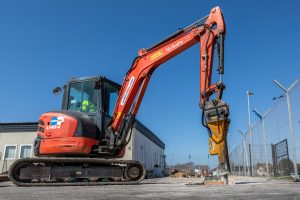Northern cities losing £16bn in productivity due to poor transport systems

Key cities across the North are losing out on more than £16bn in productivity because of poor public transport systems.
A report published today (March 22) by policy research unit Centre for Cities claims cities including Manchester, Leeds, Sheffield, Liverpool, and Newcastle, are lagging behind their European counterparts, with more than four million residents unable to reach their city centres within 30 minutes.
This restricts their employment and education opportunities, says the report, which calls for changes to planning procedures to ease the problem.
It claims, compared with similar-sized cities in Western Europe such as Hamburg, Marseille, Bilbao, Turin and Lille, on average, just 35% of residents in Northern cities are well connected to their centres.
In Europe, that figure rises to nearly seven in 10.
Much of this is due to the fact that European cities have more people living in well-connected mid-rise suburbs closer to the city centre, compared with Northern cities that are more spread out, with millions living in low-rise car-dependent districts.
The report says more people living around public transport stops in European cities means their systems are more viable than the UK, where planning rules make it almost impossible to build homes in well connected suburbs.
Among some of the key findings are:
- Nearly two million people living in Manchester cannot reach their city centre within 30 minutes via public transport. This is equivalent to around 80% of the population and is costing more than £9bn in lost productivity.
- Despite being 37% smaller than Manchester in terms of population, around 300,000 more people are able to quickly access their city centre using public transport in Hamburg.
- Only 38% of Leeds’s population can reach the city centre in 30 minutes – a stark difference to similar-sized Marseille, where 87% can.
- More than 620,000 people in Liverpool are missing out on quality public transport links, with just 36% able to quickly use the network to reach their city centre. This is compared with around 80% of people living in Turin.
- In Sheffield just 35% of residents can reach the centre within half an hour by public transport, while in similar-sized Bilbao, nearly four in five (79%) can.
- Newcastle outperforms its Northern counterparts in terms of connectivity, with 46% of residents able to reach the city centre in 30 minutes or less. However, this is still much lower than similar sized Lille, where 70% can.
The report says that, to improve public transport in our Northern cities and help them compete with their European counterparts the Government should:
- Continue to invest in new transport infrastructure in city regions where it is needed.
- Give all combined authorities powers over local bus franchises to set and control bus fares, frequencies and timetables, and specify bus networks. Much like in London and, more recently, Greater Manchester. Liverpool City Region is also considering a similar system.
- Reform the planning system to make it easier to build mid-rise new neighbourhoods in well-connected suburbs.
- Encourage councils to release small areas of greenbelt land around stations for development and implement Local Development Orders – a little used tool to get more homes built.
Centre for Cities chief executive, Andrew Carter, said: “Last month the Government outlined its ambition to create a ‘global city’ in every part of the UK by 2030, yet our research shows that major cities across the North are lagging far behind their European counterparts in terms of connectivity and providing thriving public transport networks.
“Our reliance on car-dependent low-rise suburbs is keeping local transport revenues down and costing the country billions of pounds in lost productivity – money that could otherwise be spent on building successful London-style transport systems in city regions across the North.
“If we want these cities to reach their global potential, we need to see more passengers living close to quality public transport links. Attempts to fix this problem by investing in transport infrastructure will fail unless substantial planning reforms are made to build new mid-rise neighbourhoods closer to city centres.”








